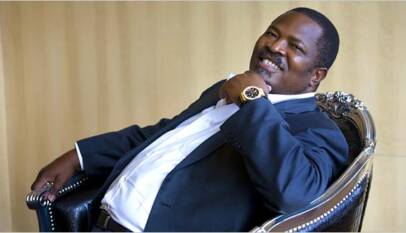From polling units to courtrooms: 2027 battle

By Zebulon Chinedu Obi Esq.
In Nigeria, elections hardly end at the ballot box. More often than not, they end in the courtroom. It is no surprise that many Nigerians now believe their votes simply open the play, while judges write the final script.
As 2027 approaches, this belief is louder than ever: are we truly running a democracy, or a jurisocracy—where the courts, not the people, decide who governs?
The Rise of Court-Declared Mandates
We have seen it repeatedly. A candidate declared the winner on election night is later unseated months later. Another who came second, or even third, suddenly becomes governor or lawmaker by judicial pronouncement.
The 2023 cycle reminded us of this reality again. Such moments always leave citizens wondering: whose mandate really counts—the voter’s or the judge’s?
Electoral Justice vs. Electoral Will
Supporters of judicial intervention are quick to argue that without the courts, elections would descend into anarchy. They point out that petitions and reviews are part of every democracy. And they are right.
But the counterargument is equally strong: our tribunals sometimes appear to cross from delivering justice to rewriting results. Technicalities—like missing signatures or flawed filings can outweigh the actual votes cast. This disconnect leaves many Nigerians feeling powerless, asking if their ballots were ever meant to count.
2027 and the Burden of the Bench
As the Country NIGERIA prepares for 2027, the judiciary faces a test of its own credibility. Can it show Nigerians that it is more than an extension of political power? Every ruling between now and the next general elections will either build trust or deepen suspicion.
The courts must walk a delicate line: correcting malpractice without replacing the ballot box. Tilt too far either way, and electoral justice becomes electoral substitution.
Reforms Beyond Technology
Much has been said about BVAS and IREV, but technology alone cannot save our elections. If INEC fails to be transparent, and the courts fail to be consistent, 2027 may repeat old cycles.
What we need is a double reform:
– An electoral process that reduces disputes through clear, transparent collation and transmission.
– A judicial system that interprets laws with consistency so that a voter in Kano does not feel justice means something different than it does in Lagos.
The Danger of Judicial Overreach
When citizens begin to see judges, rather than voters, as the true umpires, democracy weakens. Elections risk becoming nothing more than rehearsals for litigation. If care is not taken, 2027 may end up being decided more in tribunals than at polling units.
Conclusion: The Court of Public Trust
For democracy to thrive, Nigerians must trust both INEC and the courts. Laws and judgments alone cannot carry that burden—trust must carry it.
If citizens lose faith that their votes matter, no number of tribunal decisions can hold the country together.
2027 is not just a test for politicians or the Independent National Electoral Commission (INEC). It is also a test for the judiciary. Will it be remembered as the guardian of democracy—or as the referee that replaced the people’s will with its own?
CP Orutugu assures Aguata, Otuocha of neutral Police stand ahead of gov poll
Stanley Ihedigbo As part of ongoing security engagements ahead of the November 8, 2025, An…






